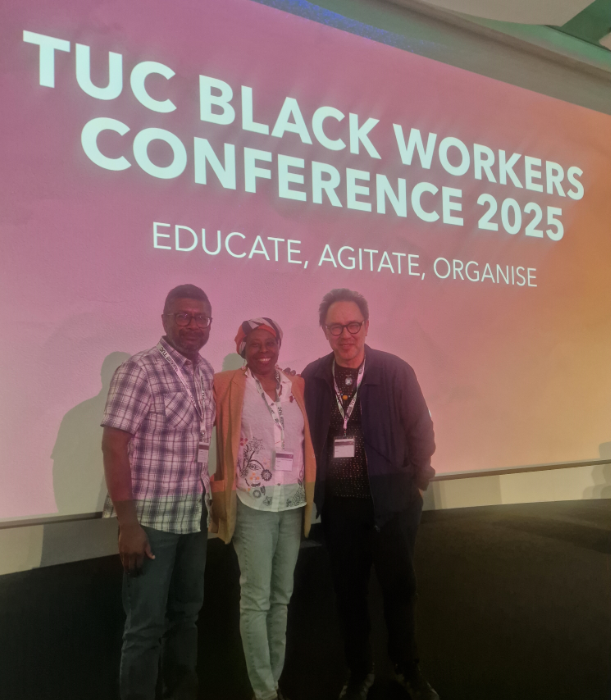Equity has joined creative unions in Wales (Bectu, Musicians Union, Writers' Guild of Great Britain and National Union of Journalists) to call for urgent action to address the current decimation of Welsh arts and culture.
As Wales gathers in Pontypridd for this year's Eisteddfod in celebration of Welsh culture and language, trade unions representing the country's writers, musicians, performers and creative practitioners, journalists, crew, front of house and backstage media professionals have written to the new First Minister of Wales expressing shared and deep alarm about the future.
Funding cuts, the effect of the pandemic, the cost of living crisis and an exodus of workers have created a perfect storm threatening arts and culture in Wales. Cultural spending as a proportion of the Welsh Government budget is one of the lowest in Europe, less than 0.15% of total overall expenditure compared to an average 1.5% in Europe. Major arts funder Arts Council of Wales has suffered a budget cut of about 37% in real terms since 2010.
In broadcasting, S4C's funding has been being continually reduced by the UK government, from £101m from the DCMS in 2010 to £88.85m in 2023/4 from the licence fee, made worse by escalting costs and inflation. Publishing in Wales is also in crisis, with a 37% real terms cut over the past decade, compromising literature for adults and children in both English and Welsh. Meanwhile, two of Wales’ magazines (Planet and New Welsh Review) have closed with a loss of both jobs and coverage of Wales’ cultural life, and there have been issues with funding for Welsh language news websites Golwg 360 and Corgi.
At Welsh National Opera, members of the Musicians’ Union recently voted in favour of potential strike action over proposals reducing the employment of the orchestra and incorporating a 15% pay cut. This follows a 35% cut from Arts Council England and an 11.8% cut from Arts Council Wales.
Bectu's recent survey has shown that half of Wales' film and TV workforce are out of work with about a third saying they see themselves leaving the industry in Wales altogether.
The sudden axing of Royal Welsh College of Music and Drama's junior music and drama training, making RWCMD the only conservatoire in the UK without regular junior provision, is a further cut which will have a devastating impact on Welsh talent of the future.
Simon Curtis, Equity National Official for Wales warned "Wales needs a cultural strategy which focuses on proper long-term investment and objectives, and on the right to fair pay and working conditions on union collective agreements for both experienced, skilled artists and emerging young talent, if the sector is to survive."
Undebau creadigol Cymru (Bectu, Equity, Undeb y Cerddorion, Urdd Ysgrifenwyr Prydain Fawr ac Undeb Cenedlaethol y Newyddiadurwyr) yn galw am weithredu brys i fynd i’r afael â’r dirywiad presennol yng nghelfyddydau a diwylliant Cymru.
Wrth i Gymru ddathlu diwylliant a’r iaith Gymraeg ym Mhontypridd yn yr Eisteddfod eleni, mae'r undebau llafur sy’n cynrychioli ysgrifenwyr, cerddorion, perfformwyr, dawnswyr, newyddiadurwyr a gweithwyr proffesiynol y tu ôl i’r llenni a'r sgrin wedi ysgrifennu at Brif Weinidog newydd Cymru yn mynegi eu pryder sylweddol am ddyfodol y celfyddydau a diwylliant yn ein gwlad.
Mae'r cyfuniad o doriadau cyllid, effaith y pandemig, yr argyfwng costau byw ac ecsodus o weithwyr wedi creu amgylchiadau sy’n fygythiad difrifol i'r celfyddydau a diwylliant yng Nghymru. Mae gwariant diwylliannol Llywodraeth Cymru fel cyfran o gyllideb ymhlith yr isaf yn Ewrop, llai na 0.15% o gyfanswm y gwariant cyffredinol, o gymharu â chyfartaledd o 1.5% yn Ewrop. Mae un o'r prif gyllidwyr celfyddydol, Cyngor Celfyddydau Cymru, wedi dioddef toriad mewn termau real o tua 37% yn eu cyllideb ers 2010.
Ym myd darlledu hefyd, mae cyllid S4C wedi bod yn cael ei dorri'n barhaus gan lywodraeth y DU, o £101m gan y DCMS yn 2010 i £88.85m yn 2023/4 o ffi’r drwydded, hyd yn oed yn fwy difrifol wrth ystyried costau cynyddol a chwyddiant. Mewn argyfwng hefyd mae cyhoeddi yng Nghymru, gyda thoriad o 37% mewn termau real dros y ddegawd ddiwethaf yn peryglu llenyddiaeth i oedolion a phlant yn y Gymraeg a’r Saesneg. Yn y cyfamser, mae dau o gylchgronau Cymru (Planet a'r New Welsh Review) wedi cau, gyda cholled swyddi yn ogystal â gohebiaeth ar fywyd diwylliannol Cymru, ac mae problemau wedi bod gyda chyllid ar gyfer gwefannau newyddion Cymraeg Golwg 360 a Corgi.
Yn ddiweddar, pleidleisiodd aelodau o Undeb y Cerddorion yn Opera Cenedlaethol Cymru o blaid streicio posibl dros gynigion y cwmni i leihau cyflogaeth y gerddorfa ac ymgorffori toriad cyflog o 15%. Dilyna hyn doriad o 35% gan Gyngor Celfyddydau Lloegr a thoriad o 11.8% gan Gyngor Celfyddydau Cymru.
Dengys arolwg diweddar Bectu bod hanner gweithlu ffilm a theledu Cymru yn ddi-waith, gyda tua thrydedd yn rhagweld y byddent yn gadael y diwydiant yng Nghymru yn gyfan gwbl.
Mae dileu hyfforddiant cerddoriaeth a drama iau Coleg Brenhinol Cerdd a Drama Cymru a hynny'n ddisymwth, sydd yn ei droi'n yr unig conservatoire yn y DU heb ddarpariaeth iau reolaidd, yn doriad arall a fydd yn cael effaith ddinistriol ar dalent Gymreig y dyfodol.
Rhybuddiodd Swyddoh Equity Cymru, Simon Curtis "Mae gwir angen strategaeth ddiwylliannol ar Gymru sy’n canolbwyntio ar fuddsoddiad ac amcanion hirdymor priodol, ac ar yr hawl i gyflog ac amodau gwaith teg ar sail cytundebau cyfunol undebau ar gyfer ein hartistiaid profiadol a dawnus, yn ogystal â'n talent ifanc, os yw’r sector i oroesi."




